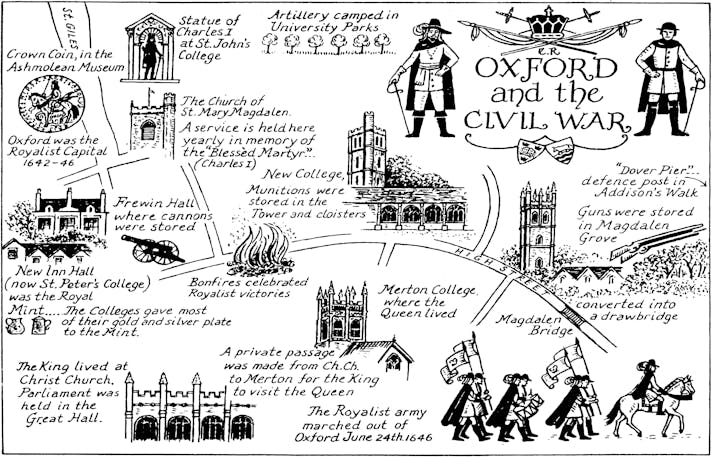The Civil War
Oxford has in fact played a large part in both of England's civil wars, but here we mean the well-known one of the 1640s, where Roundheads fought Cavaliers.
(The earlier civil war as described so atmospherically in the Cadfael stories also circled around Oxford. It's a confusing history with too many Henrys and Maud/Matildas, but in 1142 Stephen almost caught the Empress Matilda during the siege of Oxford, resulting in Matilda's famous and picturesque flight to safety from Oxford Castle to Godstow Nunnery across the frozen Thames.)

Charles I upheld the belief of the divine right of kings at a time when people felt that kings should only rule by the will of Parliament; his unwillingness to compromise with the new Puritan movement meant that a 'war without an enemy' was inevitable. Oxford was selected as the Royalist capital.
Although most of its citizens were so anti-Royalist that the King had to disarm them, the University was loyal to the Monarch. Indeed, the royalist parliament sat in the Bodleian's Convocation House. When he and his army of 5,500 had to escape from the city, across Port Meadow, it surrendered to the parliamentary victory with great reluctance. Cromwell became Chancellor in April 1646.
Subsequently a 'Parliamentary Visitation' was sent to reform and regulate the University which was exhausted and disrupted by the years of war. An uneasy relationship existed between the Parliamentarians and the academics until 1660, when Charles II was restored to the throne.



